By Anila Dushi
Memorie.al / Excellent teachers, patriots and patriots, revivalists who fought with rifle and pen for the national issue, but also skilled economists and administrators. In 12 generations, the Boriçi family has given Shkodra a number of honorable figures, with an activity that has exceeded the goals of the city and belongs to the whole country. The generations of this family stand out for their patriotic and patriotic activity, for the high level of education, for the contribution to the spread of the Albanian language, for the reforms in the field of economy before the Second World War, for the rich libraries and the cultural and educational heritage of theirs. Its history begins in the village of Boriç in Tivari and according to family members, their ancestors settled in Shkodër in the 17th century, around 1650. They first settled in the Sudbeq neighborhood, and then in the Perash neighborhood of the city. , where many of their descendants still live. The family had geographical extension and its branches in several other districts as well. The first five generations of the family are educated elders and relatives still remember them today, such as: Hysen, Rexhepi, Salih, Mustafana and Daut Boriç. Later, Shefqeti and Rizaja were dedicated to this mission, until 1967, when the communist regime of Enver Hoxha banned religious beliefs by law.
The sons of this family were mostly employed in the public administration. Mustafa of the fifth generation was a secretary in Istanbul, Dauti, an education inspector in Istanbul, and Director of Education in Shkodër, Ahmeti, served in the Turkish administration as a customs officer and then in the Albanian administration, as director of customs, Ademi and Mustafaja, in the court, Jonuzi in customs, Sulejmani in civil status, Hajriu and Ihsani in the military, where the latter had also completed the military academy.
Before the Second World War, they completed their education in schools outside Albania, thus Ihsani in the Military Academy for military economics, Zijaja in the exact sciences, while Adem Boriçi, in 1920 was a member of the Municipal Council of Shkodra, whose composition had report equal religious beliefs.
During the Second World War, from the Boriçi family, they became active in the liberation war against the invaders, some of them, such as: Et’hemi, Xhemali, Abazi, Nexhat Boriçi and many others. Meanwhile, after the war, among the most popular figures of this family were Hamid Boriçi, journalist and lecturer, author of books for the journalism faculty and one of its creators, Bahri Boriçi, mayor of Shkodër Municipality in 1996-2000 and Vahid Boriçi, advisor to the Presidency, before and after the 1990s, where he served as chief of protocol with several presidents.
The special feature of this Shkodra family is the rich libraries, which preserve its heirs, where in addition to the rich literature; you can also find important documents of the ancestors of this family, appointment decrees, diaries and chronicles of the 19th century after. In the library of Myhsin Boriçi, there are copies of the primer written by Daut Boriçi, the decrees appointing members of this family to high administrative positions.
Persecution: Boricians who were forced to flee communism
Some of the members of this intellectual and educated family could not escape the persecution of Enver Hoxha’s communist regime. This is how the 3 brothers were imprisoned and interned: Hajri, Fevzi and Nexhat Boriçi, where the latter, after escaping to the mountains in the years 1944-1946, was arrested and sentenced to imprisonment and after the end of the prison he escaped abroad. He worked as a teacher in Kosovo where he had fought in 1943 against the invaders, as a volunteer in the “Besnik Chato” battalion of the nationalist youth forces of the National Front. Ruzhdi Boriçi and Ihsan Boriçi also suffered internment and imprisonment, exclusion from secondary schools and not being given the right to go to high school.
The family that kept the life of Shkodra in the diary
Mustafa Boriçi, one of the first of this family, was secretary in the Pashallek of Shkodra until his fall. He then took up trade. He has left several diaries and chronicles written by his own hand, which provide information on economic and social developments of the time in Shkodër. He also left an accounting record for the movement of goods. These diaries, which belong to a period of time since 1834, are also registers of commercial and agricultural relations, where Mustafa Boriçi recorded the accounts he had with local and foreign merchants, as well as with villagers and many other people.
Likewise, they include the prices of various products, with the date and year, the percentages of land and sea customs taxes, the names of Shkodra traders who were active inside and outside the country, where the destination and the type of goods that were imported are also mentioned were exported from them to Rumelia, Serbia and Bulgaria, where they took and took goods such as: silk, wool, leather, wood or dried fruits.
These diaries were inherited by the family and continued by one of Mustafa Boriçi’s sons, Salo Boriçi. While in the chronicles written by Mustafa Boriçi, various events are mentioned with date, day and time, such as the destruction of the minaret by cannon fire in 1831, the names of the people of Shkodran, Tirana and Matjani who fought and gave their lives fighting against the Montenegrins and, many other events from the city of Shkodra. His son continued this rich legacy, leaving very important evidence for the history of the city.
Daut Boriçi has left rich diaries, where he gives information about important developments of the economic and social life of the country, the development of education, about the meetings of the Albanian League of Prizren and many others like these. In these diaries, chronologically and accurately, with the date and day, and sometimes even with the hour, detailed information is given about historical developments such as the invasion of Shkodra by the Turks or the siege of the Tivari fortress.
Similarly, in Daut Boqiç’s diaries, there are also written accounts of the relations of the directorate of education with the state treasury or the Agricultural Bank, showing the loans withdrawn to supplement the salaries of the teachers dependent on his office. They even include expenses for repairs made to educational institutions under the office of education, which was headed by Daut Boriçi.
He also recorded the confirmation of his retirement in 1892. One of his diaries was found by descendants only two years ago, and according to Myhsin Boriçi, (great-grandson of Daut Boriçi) it has attracted the attention of academics and researchers Albanians, but being written in old Turkish, until today, it has not been possible to translate it.
The teacher who created the Albanian primer for Shkodra
One of the efforts to have a primer with Albanian letters is that of Daut Boriçi, one of the most popular teachers of Shkodra, at the same time an active participant in the League of Prizren and the Albanians’ wars for freedom and independence. Daut Boriçi is undoubtedly one of the most honored figures of our national history.
A prominent patriot, a skilled diplomat and politician, and a renaissance man with a great contribution who gave concrete help in the spread of the Albanian language, at the time when the country was under Turkish rule, a dedicated teacher and educator. He is among those bright figures that fought with rifle and feather, for the creation of an independent Albania. As a cleric of the progressive Muslim faith (hoxha), and a teacher of the people, he was the initiator of the spread of Albanian writing, as well as a great patriot, who led the branch of the Albanian League of Prizren in Shkodër.
Daut Boriçi was born in Shkodër in 1825 and attended primary school with his family. This is proven by the diaries of Daut Boriçi himself, but also of his father, Mustafa Boriçi, who was the secretary of the Pashallek of Shkodra. In 1848, Daut Boriçi served as an imam in the mosque of Draçin, where after receiving religious lessons, he continued his higher studies in Istanbul, which he finished with very high results. Based on this, he was appointed a teacher in Istanbul and, on later also as an education inspector, in the capital of the Ottoman Empire. After that, at the request of his father, to serve his homeland, he returned to Albania, settling near his family in the city of Shkodra.
Initially, he worked as a teacher in the Mejtepi “Ruzhdije”, the most well-known in the city of Shkodra at that time, and then the head teacher or director of the Mejtepi. This school was considered the first modern institute of the time in Albania and was attended by many boys from different Shkodra families, regardless of religious belief. Daut Boriçi directed that religious educational institution until 1867, while in 1870, he was appointed inspector of education in Shkodra and was charged with the task of being responsible for the spread of schools in the Shkodra Province. He continued his mission as a teacher until 1874.
Similarly, Daut Boriçi is also the author of the publication of the first Turkish-Albanian primer, based on an alphabet with Arabic letters. Since the publication of brochures in the Albanian language was prohibited at that time, he published it anonymously. This work contained 226 words, nouns, adjectives, verbs and other words and 25 sentences. In addition to this work, he also left other works in the Albanian language, such as the grammar of the Albanian language, this work unfinished by him, the Turkish-Albanian dictionary, and two attempts at primers different from the first one.
On July 11, 1878, a branch of the Albanian League of Prizren was established in Shkodër, which for three years was headed by Daut Boriçi. With patriotism, determination and dynamism, he led the interprovincial committee of the League of Prizren for Shkodra. He has lived in the memory of the people, as the figure of a Shkodran patriot, who put his intellect, physical strength and life at the disposal of the national issue.
His house, (today the girls’ Madrasa) in Shkodër, turned into an important center of the national movement where important personalities, such as Abdyl Frashëri, etc., came to his waiting room. Daut Boriçi, sent his sons into the thick of the wars for the protection of the Albanian borders from fragmentation, where they fought with weapons in hand, for the protection of Albanian lands, such as in Hot, Grudë, Plavë and Guci. After the fall of Ulcinj, along with other patriots, Daut Boriçi was exiled to Turkey, from where he was released after 7 years and died in 1896.
The House of Boriçve, from a museum to a Madrasah
The house of Daut Boriç was a museum house of the first category, until after the 90s. Then it was damaged excessively, until it was taken by an Islamic association, which built there the Madrasah for girls in Shkodër, a function that it continues to perform today. Daut Boriçi, has been decorated with the “Order of Freedom” of the third class, for his efforts and hard work in spreading education in the mother tongue. One of the main streets in the city of Shkodra bears his name.
Tolerance: Hoxha, who laid the foundation stone of the Great Church
In the months of March and April of 1880, Shkodra turned into an arena of extremely important events in our national history. In a large gathering at the Old Market, where the heads of Shkodra and the Highlands gathered, it was agreed that Albanians, regardless of religion and belief, should unite and fight to prevent the country from being divided. From this popular assembly, a commission headed by Daut Boriçi emerged, who did not hesitate to give his help in those difficult and rather delicate moments for the country.
During the time that Daut Boriçi led the branch of the Albanian League of Prizren in Shkodër, he made important decisions, such as the signing of the memorandum addressed to the consuls of the great powers in Shkodër, on May 18, 1880. But Daut Boriçi also showed skills in the diplomatic field, enjoying the respect of the representatives of the Great Powers in Shkodër, cooperated quite efficiently with representatives of other religious faiths in Shkodër, and mainly of Catholic families. Exemplary religious co-existence is also seen in the fact that Daut Boriçi assisted and spoke at the foundation stone laying ceremony for the construction of the Great Church in the city of Shkodra, one of the largest in the Balkans.
Ahmet Boriçi: The initiator of the rise of Albanian customs
Ahmet Boriçi, is another important figure of this family, with great contribution and values in the service of the country, mainly in the field of finance and economy. He was the eldest son of Daut Boriçi, born in 1866, who after completing primary and secondary education in Shkodër, continued his higher studies in Istanbul, where he graduated in Public Administration.
After finishing school, in 1883 he was appointed and served as a clerk, secretary in the administration of Istanbul, customs officer and then director of Customs. After several years in those duties, he returned to Albania and in 1920 was appointed director general of the Albanian Customs Service. In this period of time, he is noted for establishing previously unknown customs regulations and drafting customs laws.
In those years, he also had a great friendship with Ndoc Çoba, which was a result of his family’s family tradition of religious coexistence. Previously, in 1918, by decree no. 2967, issued by the Kingdom of Austria-Hungary, Ahmet Boriçi, decorated with the order “Knight of the Order of Franz Joseph”.
While with the decree of King Zog, dated 14.06.1925, (decree that, together with others, is preserved as a valuable asset of the Boriçi family), Ahmet Boriçi is appointed director of Customs in Shkodër. From the Municipality of Shkodra, Ahmet Boriçi is appointed a delegate of this city, in the celebrations for the declaration of independence in Tirana, where he presents the relevant congratulations together with other delegates, such as: Gjon Çoba, Man Tepelija, Faslli Ademi and Tefe Gera.
Ahmet Boriçi also has great merits in the field of economy and business, as he is the initiator of the mobilization of free capital, for the development of companies with joint capital. In the years 1926-1930, the first joint-stock companies were developed in Albania, and with his initiative, a joint-stock company was created for the production of cement, with the aim of reducing imports, which was evidenced through the duty of chief customs officer.
His invitation was initially supported by some businessmen who were the first shareholders of this company, which then spread throughout the country. Ahmet Boriçi is the head of the supervisory board of this company twice in a row and led the correspondence with industrial machine manufacturing firms, organized the establishment of a qualified administration, etc. Memorie.al




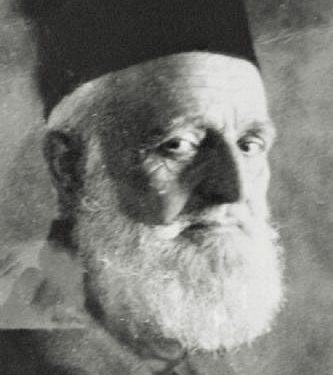

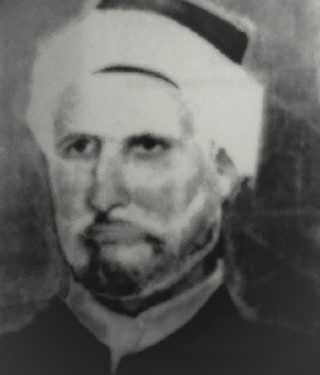
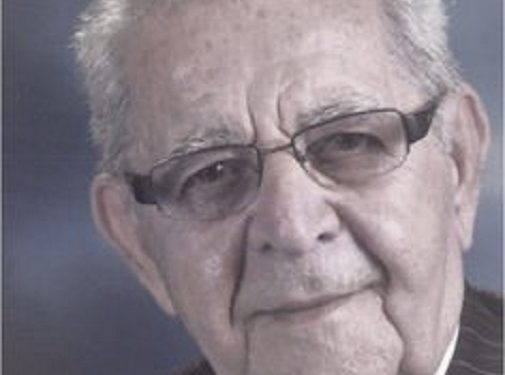
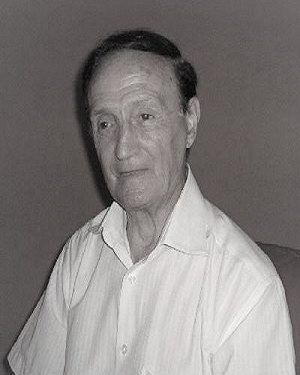

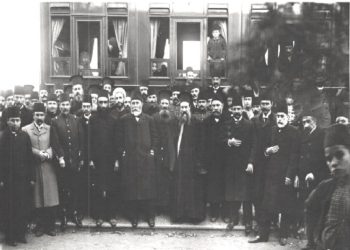
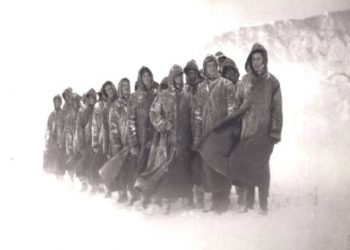

![“When the party secretary told me: ‘Why are you going to the city? Your comrades are harvesting wheat in the [voluntary] action, where the Party and Comrade Enver call them, while you wander about; they are fighting in Vietnam,’ I…”/ Reflections of the writer from Vlora.](https://memorie.al/wp-content/uploads/2025/06/admin-ajax-4-350x250.jpg)


